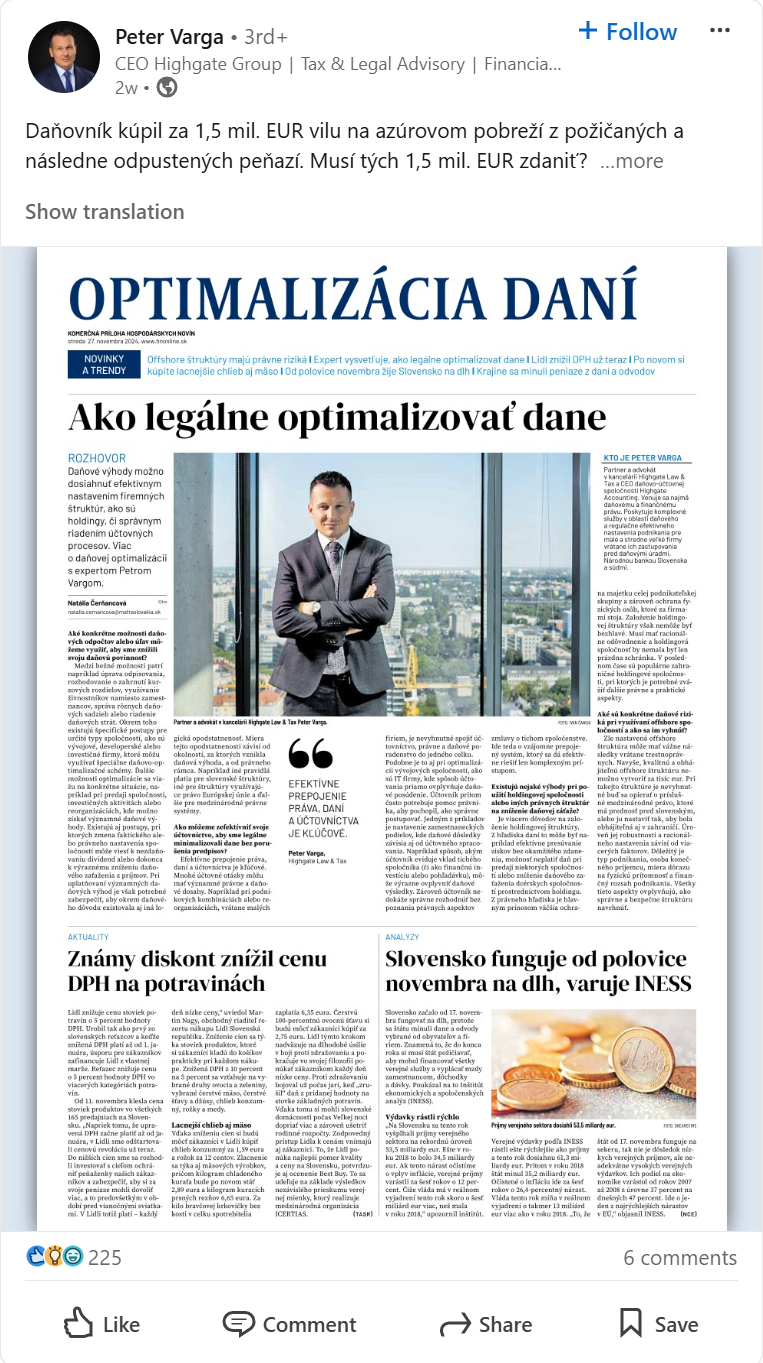

The taxpayer bought a villa on the Côte d’Azur for EUR 1,5 million with money borrowed and subsequently forgiven. Does he have to tax the EUR 1.5 million?
Debt forgiveness is relatively common in practice. Both at the level of FO and PO. Therefore, let me make a few remarks.
📌 The “income” from the loan is not taxable income.
📌 However, loan forgiveness may already be taxable income.
The taxpayer’s balance sheet (within the scope of this topic) would look like this:
Before making a loan:
ASSETS | LIABILITIES
0 EUR | 0 EUR
After the loan is granted:
ASSETS | LIABILITIES
EUR 1.5 MIL | Loan commitment
After the purchase of the villa: ASSETS | LIABILITIES
Villa | Loan commitment
After loan forgiveness:
ASSETS | LIABILITIES
Villa | Profit
So is this profit taxable?
Loan forgiveness itself has no explicit normative anchor in the law. It is therefore necessary to examine the substance and assign the relevant legal frameworks accordingly. Not only to determine the taxability of the income, but also with respect to so-called fiduciary management (whose property it is if the donor or donee were to go bankrupt).
Debt forgiveness could be considered a gift. A gift is not taxable income. However, based on the rational taxpayer (donor) theory, unless there is a special (especially close familial) relationship between the donor and donee that would subsume such a gift under the ordinary gift in the broad sense, the tax authorities would be inclined to hold that it is consideration.
👉 And the consideration is taxed. How depends mainly on whether for one-off or repeated performances:
Repeated Fulfillment:
☑ Tax + health insurance premiums (lower) + (possibly) social insurance premiums;
☑ If the debt forgiveness would happen in 2025, so would the VAT.
One-time performance:
☑ Tax + health insurance premiums (above) The tax office would probably be inclined to tax as a lump sum. And there, it would generally be taxed the same as crypt income.
While in the case of this azure debt forgiveness, the taxpayer does not do much that is legal (he can change his insurance residence to that of France, for example), the SK FO and PO for crypt income do. Let me therefore invite you to our webinar on the taxation of cryptos. https://lnkd.in/ejbd4Nta
In a roundabout way, but still. Because it’s better to do it properly than messily
Law & Tax
Tomas Demo
tomas.demo@highgate.sk
Accounting
Peter Šopinec
peter.sopinec@highgate.sk
Crypto
Peter Varga
peter.varga@highgate.sk